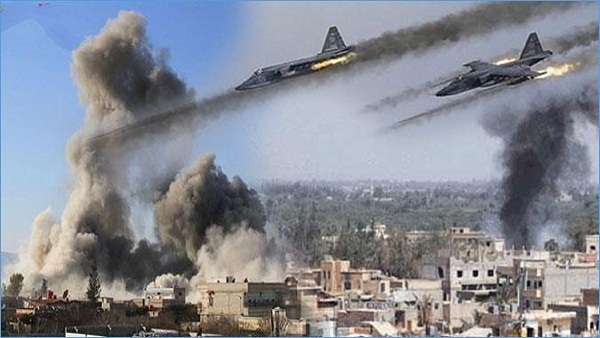
by: Nadim Houry
Director, Terrorism and Counterterrorism Program
Ahed is an 11-year-old Syrian girl whose life was upended on the evening of March 20 when an airstrike hit the school near Raqqa where she and her family had sought shelter. Ahed survived, but the attack killed her father, her four siblings, and more than a dozen of her extended family.
It was not Syrian or Russian airplanes that killed Ahed’s family. It was a plane from the US-led coalition to defeat the Islamic State (also known as ISIS). I visited the building in early July after Syrian Democratic Forces, backed by the US, captured the area. While locals said that families of ISIS fighters who had fled Iraq were living in the school and that some ISIS fighters used to visit them there, the school also housed many displaced people who had no ties to ISIS, such as Ahed’s family. We collected the names of 40 civilians, including 15 women and 16 children, who died in the strike.
International law requires compensation for civilian victims of violations of the laws of war, including the obligation to take all feasible precautions to minimize civilian harm. The coalition has said that it struck the school where Ahed’s family stayed believing it was an ISIS intelligence headquarters and weapons storage facility and that “there is insufficient evidence” that civilians were harmed in the strike. The evidence, as tangible as Ahed’s scars, is real and the coalition should review its findings following Human Rights Watch’s on-the-ground investigation.
But even if a strike did not violate international law, civilian victims like Ahed need assistance, and the question of the coalition’s policies toward them is ever more pressing in light of mounting casualty figures. As of September 1, the coalition had acknowledged that it may have “unintentionally killed” at least 685 civilians in Iraq and Syria since the start of Operation Inherent Resolve in 2014. Independent monitors like Airwars, a watchdog group, estimate the number is closer to 5,000. The Syrian Observatory for Human Rights reported on September 20 that coalition airstrikes had killed 1,064 civilians, including 248 children, in Raqqa alone since operations began to retake the area in early June.
But the coalition has yet to address this issue properly. Victims of coalition airstrikes are seen as unfortunate collateral damage in the effort to defeat ISIS. They are usually invisible in the media – nameless, faceless, and if any of them are interviewed by international media, it is often to ask them about their life under ISIS and not about the harm they have suffered at the hands of the coalition.
The coalition speaks of “unintentional victims” but makes no effort to reach victims to issue an apology. Apologies and other acknowledgements of harm would send a powerful signal that the coalition is not indifferent to their fate.
While symbolic gestures are important, victims like Ahed, also need material assistance. When we met her, she had made it to relatives living in Lebanon, but they are poor and unable to pay for her education. The issue is not to put a price on life but to assist victims in addressing needs that arise as a result of coalition bombing. The US military, as well as some other members of the coalition, have extended payments in the past in Afghanistan and Iraq to victims of their actions – not as a form of legal compensation but as a gesture intended to ease civilian suffering. The payments are referred to as condolence or ex gratia payments, to emphasize that there is no legal obligation to make them.
In December 2016, Congress gave the Pentagon permission to make such condolence payments to families of civilians killed or injured by American airstrikes in Syria. But it is not clear what system – if any – has been put in place to make such payments. A coalition spokesperson told Human Rights Watch recently that “Under appropriate circumstances, commands may consider providing ex gratia payments as an expression of sympathy to those injured or the families of the deceased.” But what would constitute appropriate circumstances is not clear. The coalition’s response simply states that a request should be received by the coalition’s “claims department.” None of the victims or local activists we interviewed know how to approach this claims department.
Ahed’s tragedy should serve as a reminder of the suffering caused by the coalition’s lack of policies to assist victims of their bombing. It may be impossible to stop all civilian suffering in war, but much more can be done to alleviate it. The first step is for the US-led coalition to acknowledge the victims of its attacks and make effective its systems to help the victims obtain redress. No one can really compensate Ahed for the loss of her loved ones but one can make sure that her loss does not include the inability to go to school.
Source: HRW





